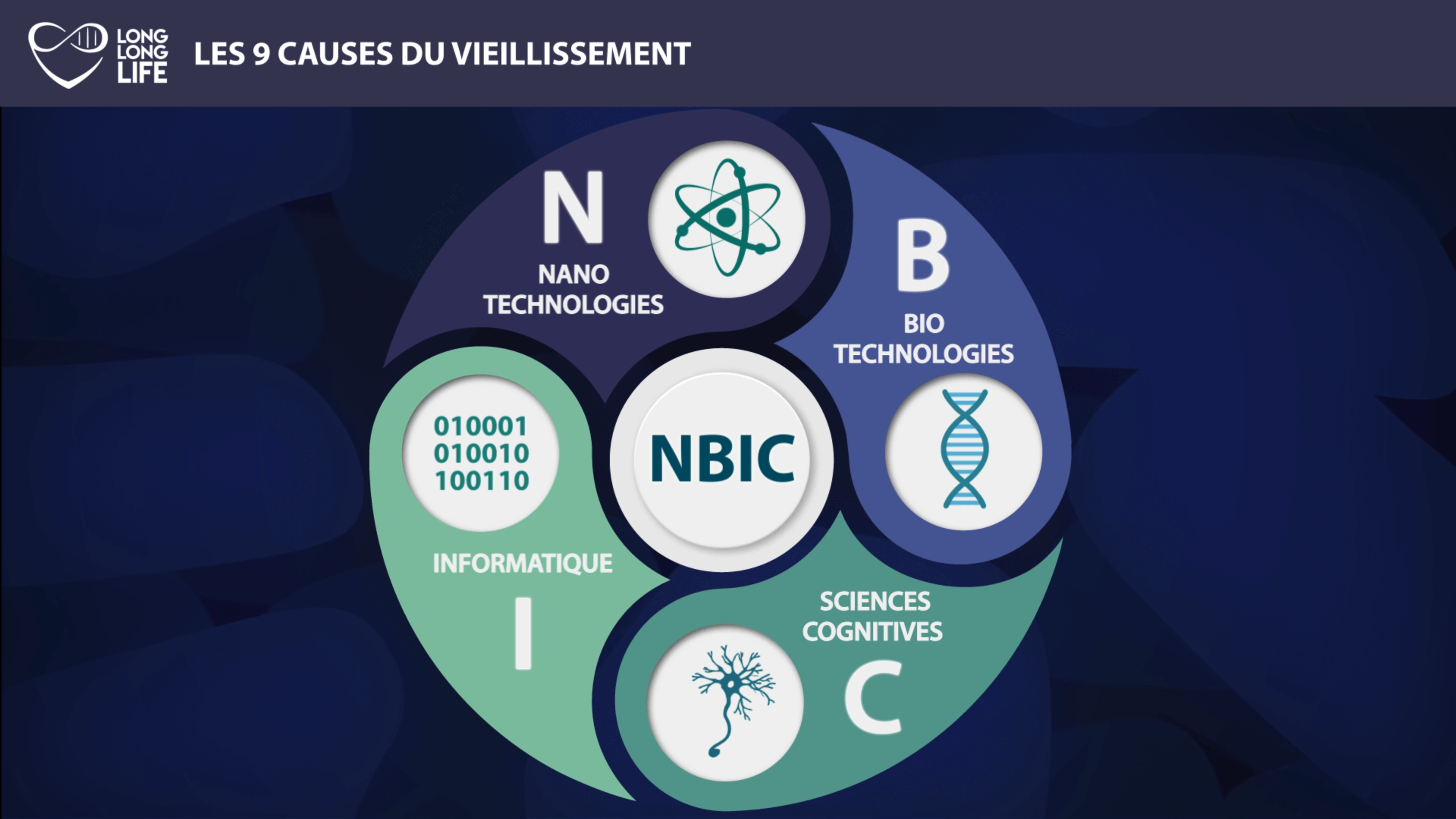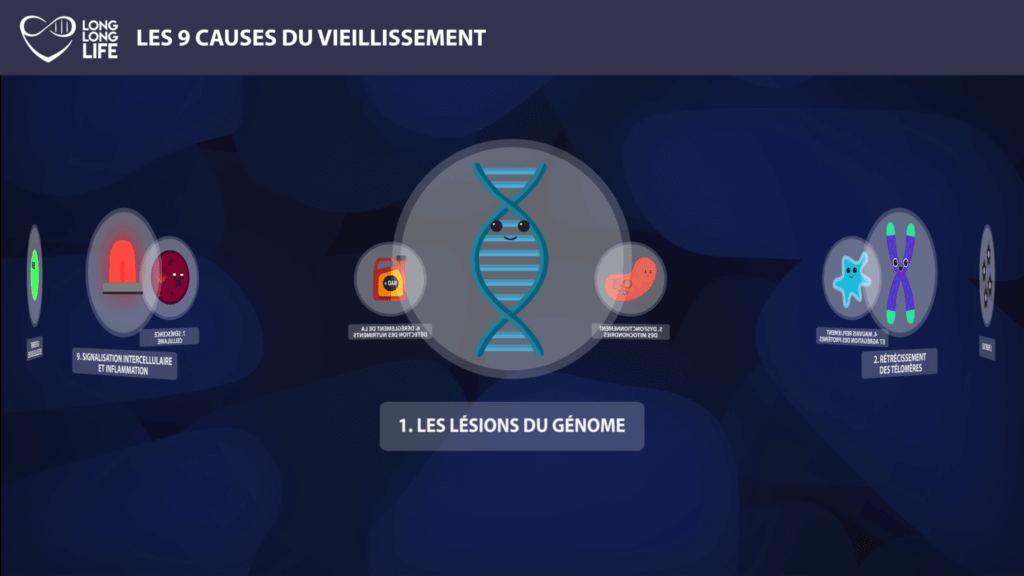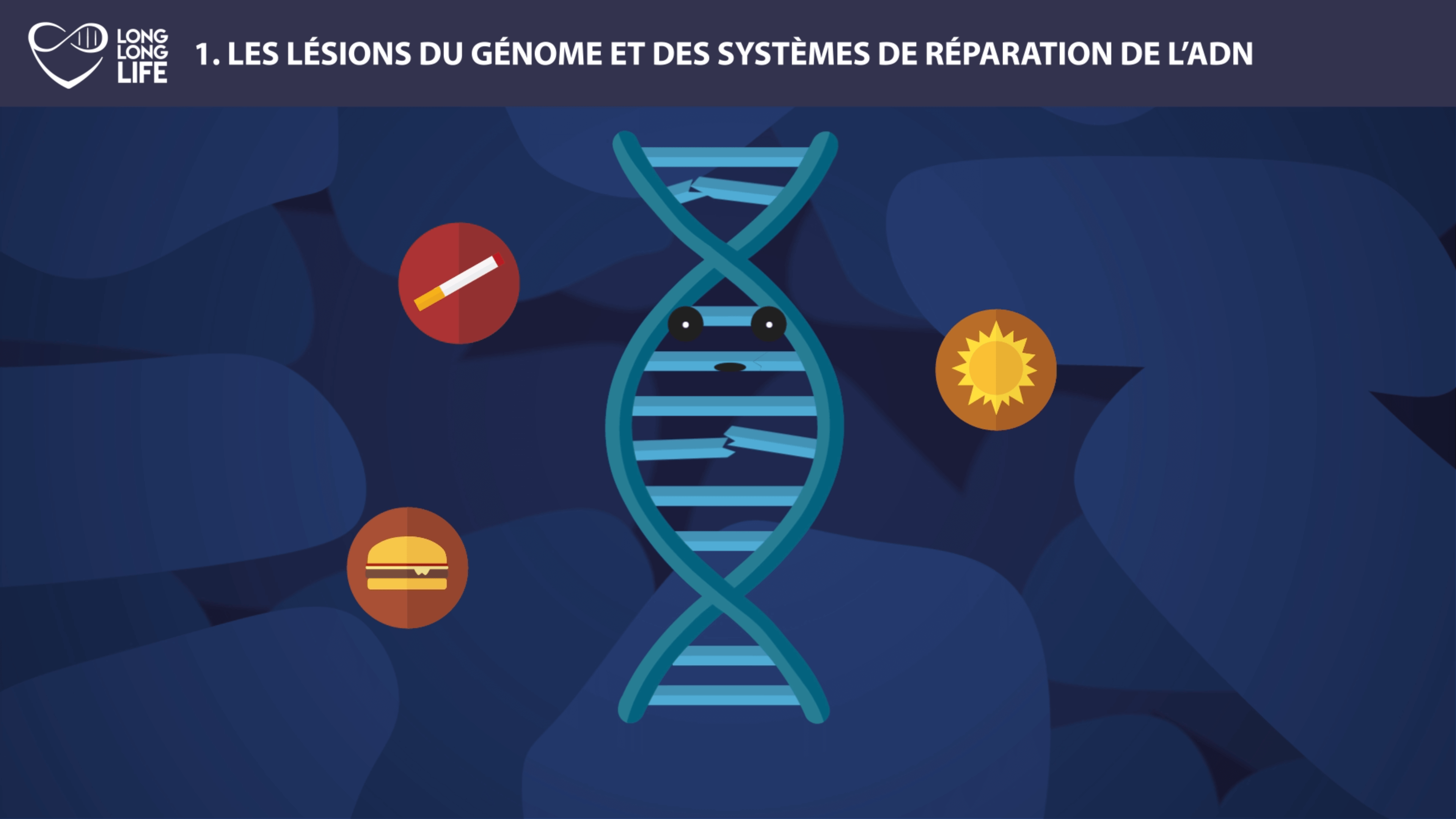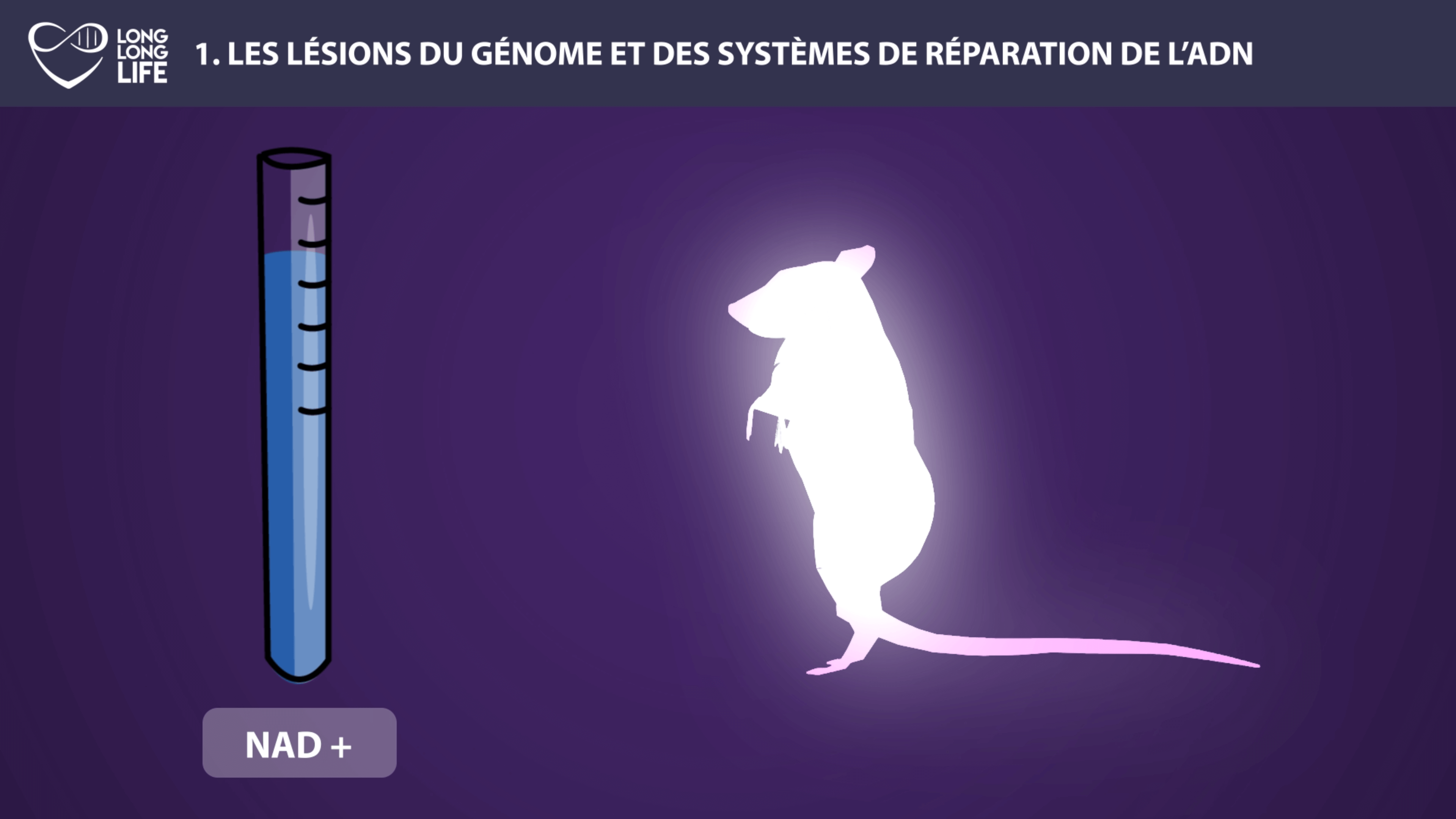Part 1: The Causes of Ageing - DNA Damage

In this series we will discuss the identified causes of ageing. And if you are interested in the subject, we invite you to read the excellent review Hallmarks of Aging published in the journal Cell in 2013.
In this series, we will discover together the mechanisms that your body sets up during the ageing process and that have an impact on your health and life expectancy. We will also try to give you an overview of the state of scientific research concerning all existing anti-ageing treatments .
So why this series on human aging?
Humanity is on the verge of an upheaval concerning ageing. This transhumanist revolution is made possible by complementary scientific approaches grouped under the name of NBIC, whose acronym stands for Nanotechnologies, Biotechnologies, Informatics and Cognitive Sciences. It is only by having access to quality information that everyone will be able to decide to take measures against ageing, with full knowledge of the facts and according to their own risk/benefit criteria. This is why we have decided to make the state of research in this field accessible to all, with its share of good and bad news.

But what is a cause? It is sometimes difficult to know what is a primary cause or a consequence of ageing. A lot of research is being done to identify the most fundamental causes, because it is by directly treating the causes rather than the symptoms that mankind will be able to rapidly overcome ageing.

DNA Degradation - Definition
The first cause of ageing that we are going to discuss is the damage to our DNA over time. DNA is the carrier of the information that makes us what we are, the program that builds our body. This information is made up of genes and all the genes are grouped together under the name of "genome".
This information is mainly stored in the nucleus of each of our cells. The genome contains all the information that allows our cells to make proteins, each with a specific role in making our body function. These proteins are synthesised thanks to the information contained in each gene and there are between 25,000 and 30,000 genes. All this information must be passed on from one cell to another when they divide to produce daughter cells. And to do this, well, the DNA has to be replicated in its entirety at each cell division.

Unfortunately, although this replication system is very efficient, it is not without errors. It has been observed that DNA errors accumulate throughout life, as many factors threaten the stability of the genome. These factors are varied and can be external, such as smoking, sunlight, diet... but also internal, such as replication errors: when your body has to copy the information contained in your DNA, it makes mistakes. These errors can either be repaired, lead to the death of the cell or, and this is the problem, be transmitted to the daughter cells.
Fortunately, we have repair systems. Some genes make proteins that repair replication errors. However, sometimes replication errors affect the genes that make these repair systems and, in a snowball effect, there is an exponential growth of problems within the cell. In mice and humans, it has been shown that there is a causal link between an accumulation of DNA damage and ageing.
In fact, when the cells in our body are made to divide a large number of times and carry genetic mutations, this leads to a malfunctioning of the cell which can cause problems in the organ concerned.
DNA Damage - Repair Systems
Interestingly, it has been shown that as we age, repair systems (such as the PARP protein) become much more abundant in cells, suggesting that our bodies are aware of the deregulations that come with age and try to take steps to combat them. The activity of these repair systems is, however, dependent on co-enzymes, small molecules that enable them to function. These are essential fuels for our cells, whose concentration and recycling decreases with age. Among them, NAD+ is often mentioned, as it is essential to the repair mechanisms, but also to the health of the mitochondria, to which we will return later. When these molecules are eventually depleted, our repair systems no longer function properly, leading to serious disruptions, not only in replication but also in other mechanisms, which can lead to the death of the cell.
The question then arises as to whether the chicken or the egg came first. Do co-enzymes decrease because there are more replication systems, or do these systems increase in number in an attempt to compensate for the lack of repair due to the co-enzyme deficit? Are these mechanisms causes or consequences of ageing?
All we can say today is that there is a correlation between the stock of NAD+ (one of the co-enzymes) and ageing.
DNA damage - How to fight it?
This is where the difficulty of preventing ageing comes in. Supplementing with NAD+ may be a good idea to boost our repair systems, but it is also possible that the cell suicide linked to NAD+ depletion is a protection for the body against cells that have become too genetically ill and that it would be preferable to eliminate.
When the theory becomes too complicated, experiments are carried out.
Researchers used mice that were treated to maintain a constant level of NAD+ throughout their lives. And, miraculously, not only did the treated mice live healthier lives, they also lived longer than the untreated mice.
This shows that, in mice at any rate, taking NAD+ seems to be a good idea to combat ageing. For humans, as usual, this remains to be proven.

We close this chapter on DNA damage with this example, to help you understand the complexity of understanding a mechanism, and drawing practical conclusions and safe treatment for those who want to live longer.
In summary, the primary cause of ageing discussed here is damage to the DNA that is perpetuated with each cell division. Over time, they accumulate and cause our cells to malfunction or die.
SOURCES:
Dr. Guilhem Velvé Casquillas on http://www.longlonglife.org/

